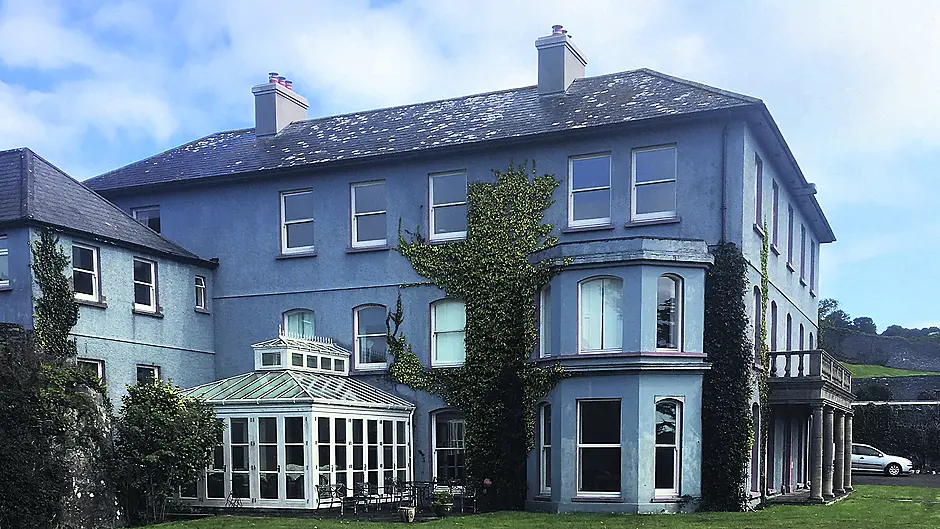The complex relationship between Irish America and Ireland during the Irish revolution is documented in a new biography of Justice Daniel Cohalan, a prominent nationalist, with
West Cork – and even Southern Star – links, writes the book’s author Michael Doorley
JUSTICE Daniel Cohalan, whose parents hailed from Courtmacsherry, was a dominant figure in the Irish-American nationalist movement in the early decades of the twentieth century.
But until my recent publication of a biography into him, printed by Cork University Press, little was known of Cohalan, save for his spectacular clash with Éamon de Valera during the latter’s visit to the United States in 1919-20.
De Valera’s subsequent remark about Cohalan: ‘Big as the country is, it was not big enough to hold the Judge and myself’, sums up, not only the rivalry that emerged between both men over control of the Irish-American nationalist movement, but also Cohalan’s powerful leadership role in American politics at the time.
Born in Middletown in New York State, Daniel Cohalan had strong family roots in Co Cork. His grandfather John P Cohalan and his father Timothy, then a boy of just 12, left Queenstown (now Cobh) during the Great Famine in 1848. In 1861, Timothy met and married Ellen O’Leary, also from Courtmacsherry, who had left Ireland in 1853. Daniel, born in 1865, was their eldest child.
After graduating from Manhattan College, Daniel became a successful lawyer. In 1911, as a consequence of his close association with Tammany Hall boss Charlie Murphy, he became a New York State Supreme Court Justice, a position he held until 1924.
Despite his immersion in New York politics and society, Cohalan was a committed Irish nationalist. At a young age, he joined the secretive Irish revolutionary organisation Clan na Gael, then led by the old Fenian exile John Devoy.
By 1900, he had become a trusted advisor to Devoy who valued his advice on American politics.
Cohalan reinforced his connection to his ancestral county through his marriage in 1899 to Hanna O’Leary, a distant cousin on his mother’s side.
Hanna was a niece of Monsignor John O’Leary of Clonakilty, who then sat on the board of the The Southern Star. In 1911, the couple purchased a holiday home in Glandore, which they visited for over 30 years.
Such visits were covered in glowing terms in the pages of The Southern Star but these visits were more than mere vacations. Royal Irish Constabulary reports indicate the well-founded suspicion that he was also bringing over much-needed American funds for the Irish Republican Brotherhood.
Both in Glandore and at his lavish home in New York’s Upper East Side, visiting Irish nationalists such as Patrick Pearse and Douglas Hyde were always assured of a warm welcome.
Cohalan, as a senior member of the Clan, unsuccessfully sought to enlist more German help for the 1916 Rising.
Later, as leader of the 275,000-strong Friends of Irish Freedom (FOIF), he became the spokesman for Irish-American nationalism during Ireland’s War of Independence.
Through his efforts, he brought the Irish question to the fore in American politics. Cohalan’s role as a powerful lobbyist for Irish ‘self-determination’ earned him the enmity of President Woodrow Wilson who feared Cohalan’s actions would negatively impact on Anglo-American relations.
However, De Valera, as my book documents, disagreed with Cohalan’s strategy and tactics and this led to a bitter split between both men in November 1920. Despite being an Irish nationalist, Cohalan remained a committed American isolationist for all of his political life. He campaigned against American entry into the League of Nations and in the 1930s spoke out against the growing international ties between the United States and Britain.
This biography, not only highlights his significant role in American politics, but also epitomises the complex relationship between Irish America and Ireland during an important phase in the Irish revolution.
• Justice Daniel Cohalan 1865-1946 American patriot and Irish-American nationalist by Michael Doorley is published by Cork University Press, 2019).







